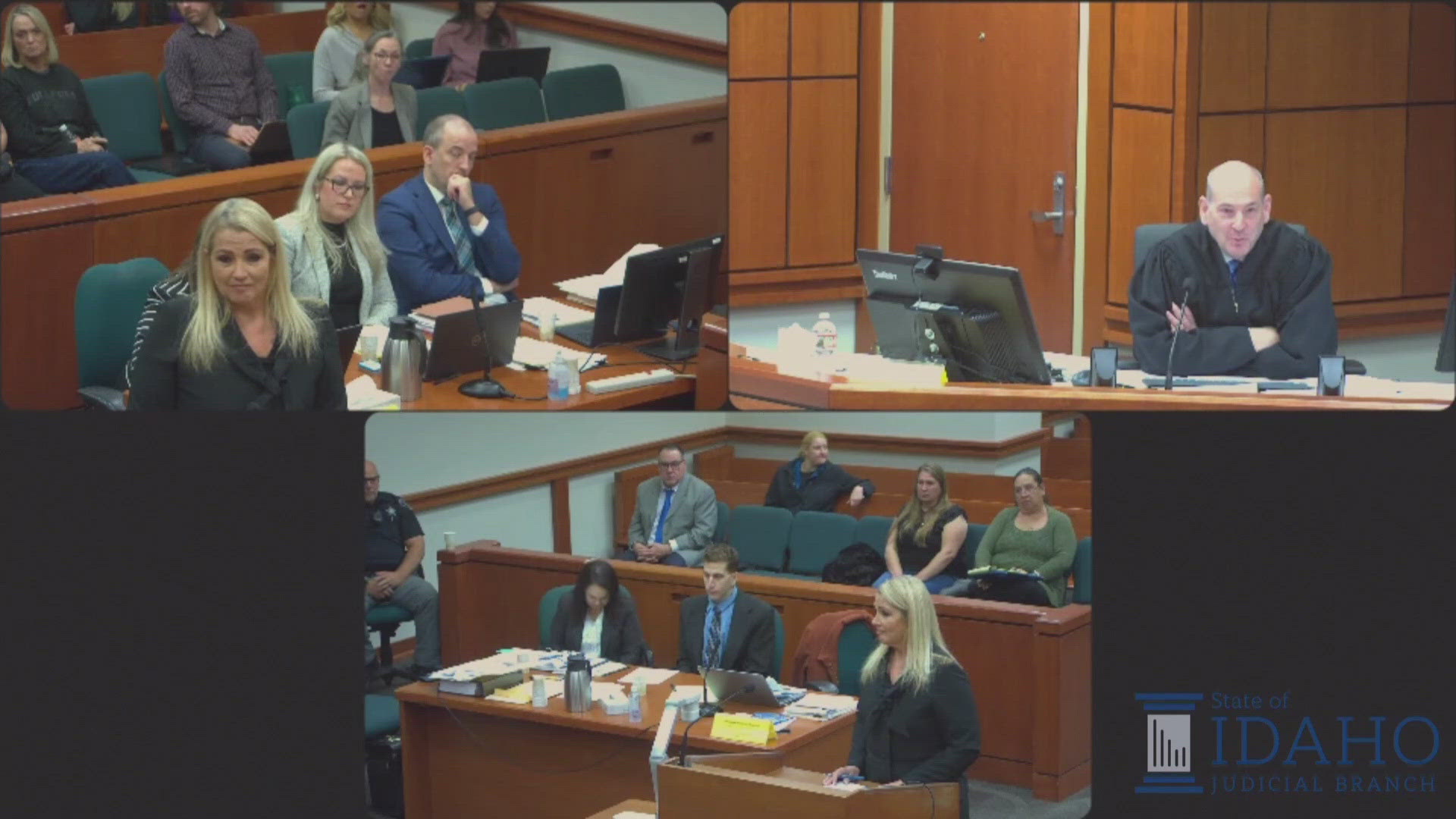BOISE, Idaho — In less than a year, Bryan Kohberger will face trial in Boise. Though after hours of testimony Thursday in an Ada County courtroom, it's still unclear whether he could be put to death if convicted.
"Capital cases are a really big deal," defense attorney Anne Taylor told Judge Steven Hippler when asking him to weigh a slew of motions her team has filed to get possible capital punishment tossed.
Under Idaho law, a jury must unanimously impose a death sentence and can only do so after finding at least one aggravating factor exists. Prosecutors are arguing four aggravating circumstances in the quadruple murder case: multiple murders happened at once, the murders were "especially heinous, atrocious or cruel," the "defendant exhibited utter disregard for human life," and he presents a "propensity to commit murder which will probably constitute a continuing threat to society."
The 29-year-old defendant is accused of killing four University of Idaho students, Madison Mogen, Ethan Chapin, Xana Kernodle and Kaylee Goncalves, in November 2022.
During an hours-long hearing Thursday the defense attempted to pick apart each aggravating circumstance as reasons to toss the death penalty.
“Idaho’s the only state that has the multiple victim and propensity aggravator,” said defense attorney Elisa Massoth.
She said the multi-victim aggravator is clear, though it presents a unique challenge.
“The irony in some of that is it seems to lessen the value of a single human life but it still doesn’t tell us anything about the culpability of the person who has been charged with the crime.”
“Isn’t it more culpable to kill two people than one?” Judge Hippler asked. “Isn’t it morally more problematic the more lives you take? The floor’s pretty high, but what I’m saying is, doesn’t that bring you above the floor?”
Anne Taylor argued against the propensity factor, saying determining the probability of future violence could prove tricky to a jury, mainly due to the word 'probably' in the statute.
"Those are hard concepts for a jury," she said.
"Jury would have to be convinced beyond a reasonable doubt it's probable they would kill again. I think that's the way that washes out," Judge Hippler interjected.
"I think that's how it washes out too," Taylor replied. "And I think it's just a problem with the word 'probably' in there."
Prosecutors took issue with the idea a jury wouldn't understand what was being asked of them by the judge.
"The court is being asked to start with the presumption a jury won't be able to follow the law," said deputy attorney general Ingrid Batey.
Taylor also argued she has a legal and ethical duty to represent her client to her best ability, which also means a mental evaluation that must be turned over to the state and its experts. She told Judge Hippler that will likely open the defendant up to evidence or experts that will paint him in a prejudicial light to jurors considering capital punishment.
“I can’t tell you the number of times I’ve sat in court and listened to a prosecutor talk about, at sentencing, my client or their acts are the worst they’ve ever seen. That can’t be true when you sit in court day after day after day and you hear that about person after person after person," she said. "This statute doesn’t do anything to help a jury decide who is the worst of the worst.”
Though Taylor went beyond specific statute. The defense often railed against the state's capital punishment law as a whole in their argument to have it struck from this case.
“When somebody sits on death row and there’s no real means of executing them, that is dehumanizing to that person," Taylor said.
Taylor pointed to the state's failed attempt to execute Thomas Creech in February; that came down to an inability for medical staff to find a vein, a discrepancy Judge Hippler called out in Taylor's argument.
“You rely significantly on the idea [that] lethal injection is not available based upon the quote-unquote botched execution of Mr. Creech," he said, adding he didn't see how the instance could be universally applied to death row inmates.
Though Taylor also argued the state has sometimes had trouble obtaining the necessary lethal injection drugs, which in 2023 opened up the other accepted capital method of firing squad. Taylor argued that hasn't even been set up yet and presents constitutional problems of its own with the emotional distress someone may face while facing down armed executioners.
She said waiting decades on death row could carry fear and anxiety that may constitute cruel and unusual punishment.
"To have him sit on death row and say Idaho's going to figure out how to kill you at some point in the future in a way that's not cruel and unusual and not a violation of your rights, I just don't think the constitutional protections allow that to happen."
Prosecutors fought back on the claim Idaho has no means to execute someone and said the penalty itself is not at issue. In a common refrain the state used numerous times to shut down defense arguments, Jeff Nye added these are issues of law that are clearly upheld and established by case law and higher courts.
"Deciding the method of execution is not deciding the sentence," he said. "The sentence is death, the method of execution is just how that's brought about."
Judge Hippler and the prosecution also both brought up the fact that if convicted, the defendant may wait decades to die, during which time new, yet-unimagined methods of execution may be discovered.
The judge said he'd release written rulings at a later date; Kohberger's trial is set for August 2025.

